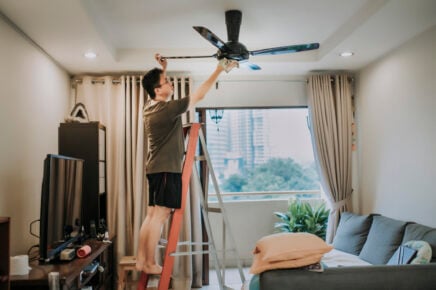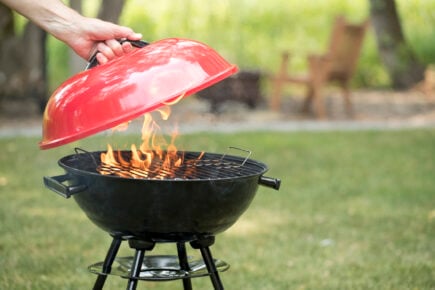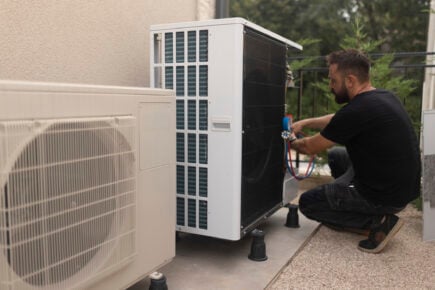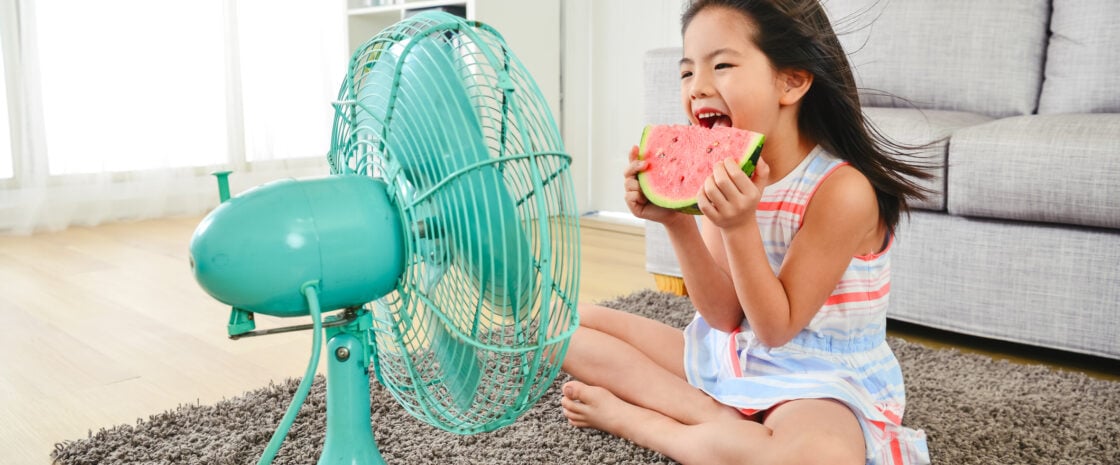Summer is in full swing — and with it comes the potential for record high heat.
In 2023, Canada experienced its hottest summer ever, with more above-average temperatures in the forecast again this year. To beat the heat one must find ways to stay cool — and for some, creative solutions will be key.
According to recent data analysis from StatsCan, around 60% of Canadians reported having household air conditioning, but this number drops to less than 50% for individuals who don’t own their home. A/C availability also varies greatly by province, with only 32% of British Columbia residents living with household A/C, compared to as many as 85% of people living in Ontario, according to StatsCan.
Even if you have A/C, you may be looking for ways to save on energy costs or decrease your environmental impact.
Here are some ways to regulate the temperature of your house or apartment without cranking up the air conditioning.
Nerdy tip: When it’s really hot — above 35 degrees Celsius, for example, fans and other means of cooling may not be as effective at keeping you safe and comfortable. During times of extreme heat, consider moving to an air-conditioned environment to get some relief, like your local library, community centre, mall, or a friend’s house.
Shut out the light
Heat permeates your home in the form of light entering through the windows.
According to Ecohome.net, a sustainable living website, an average south-facing window in Montréal receives more than 7.5 kWh of energy in a day in June — equivalent to a 700W baseboard heater running on high for 12 hours.
Close and cover east-facing windows first thing in the morning to limit sun exposure and make sure to cover south and west-facing windows as the sun moves throughout the day.
You can use the window coverings you’ve already got or take things a step further by installing sun blocking drapes, window film or insulated cellular shades. According to the U.S. Department of Energy, the air pockets in cellular shades act as insulators which reduces the ability of heat to conduct through your window by up to 60%.
Think twice about cooking inside
Using the stove or oven raises the temperature of any space, so when the weather is hot, consider keeping indoor cooking to a minimum.
Choose to make meals outside on the barbecue, use a slow cooker, or opt for easy no-cook meals like salad to maintain a cooler temperature indoors, if you can.
When it’s hot outside, you may also want to skip running other appliances like your dishwasher and dryer during the daytime hours as well.
Use fans efficiently
Whether you opt for a table-top, window, box, tower or ceiling fan may depend on preference or budget — but they all come with different advantages when it comes to staying cool.
If you already have ceiling fans installed, these can be one of the most efficient ways of moving air throughout your space — as long as you have them set to run counterclockwise so air flow is pushed down into the room.
Window fans can be installed in your open windows, and can be especially effective at drawing in cool air at night. By setting up larger box fans strategically — one pulling cooler air in through a window or door and another pulling warm air out of the room, you can create an effective cross-breeze.
Smart fans can also connect to your phone via an app and operate through a program, like a smart thermostat, so you can set it to turn on and off at specific temperatures or times. And you can convert existing fans into smart fans by installing smart switches or using smart plugs.
Nerdy Tip: Whether you’re using a tower fan or smaller table-top fan, you can create a DIY air conditioner effect by placing ice in front of the fan.
Install awnings
Similar to blinds but on the exterior of your home, fixed or retractable awnings work to shade your windows or larger exterior living spaces from heat-generating sunlight.
Awnings are touted as a greener solution to cooling your home than A/C. Installing awnings can reduce the impact of solar heat by up to 65% through south-facing windows and more than 75% via west-facing windows, according to Energy.gov.
DIVE EVEN DEEPER

The Simple Summer Cooling Trick That Most People Miss
This simple switch can actually make a big difference in helping keep your home cool during scorching summer days — and save energy.

How to Avoid 5 Common Summer Home Insurance Claims
More time in the pool and firing up the grill can lead to costly home insurance claims. Here’s what to watch out for.

Heat Pump for Home Efficiency: How It Works, Savings, Rebates
Heat pumps use less energy than furnaces or central air conditioners. Taking advantage of rebates can reduce your heat pump installation costs.

Struggling to Keep Cool? Here Are 3 Cheap Places to Swim
Public pools, beaches and lakes and secluded swimming pools are all great places to take a dip — without dipping too deep into your wallet.

